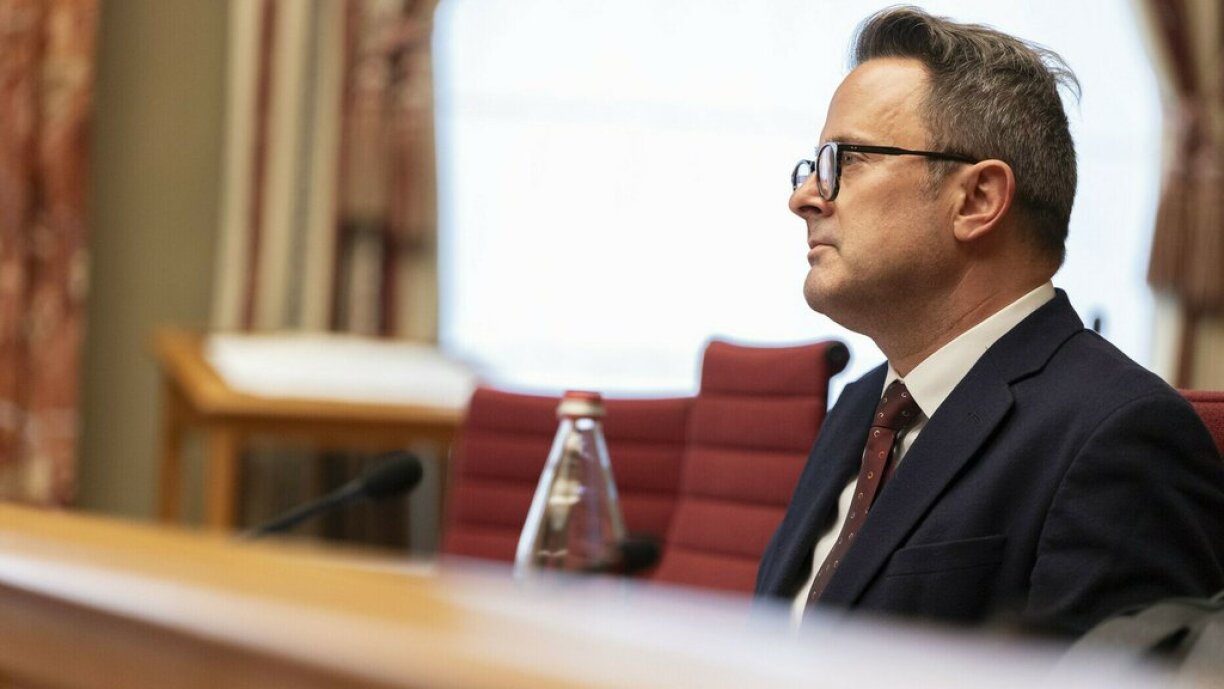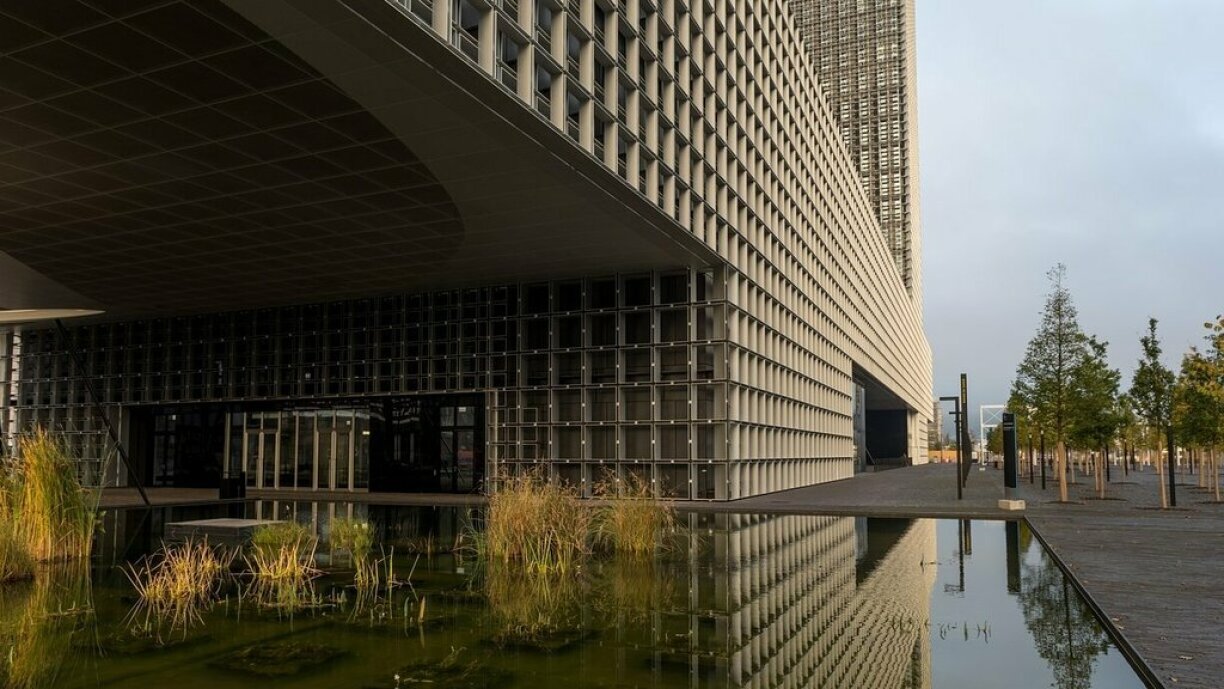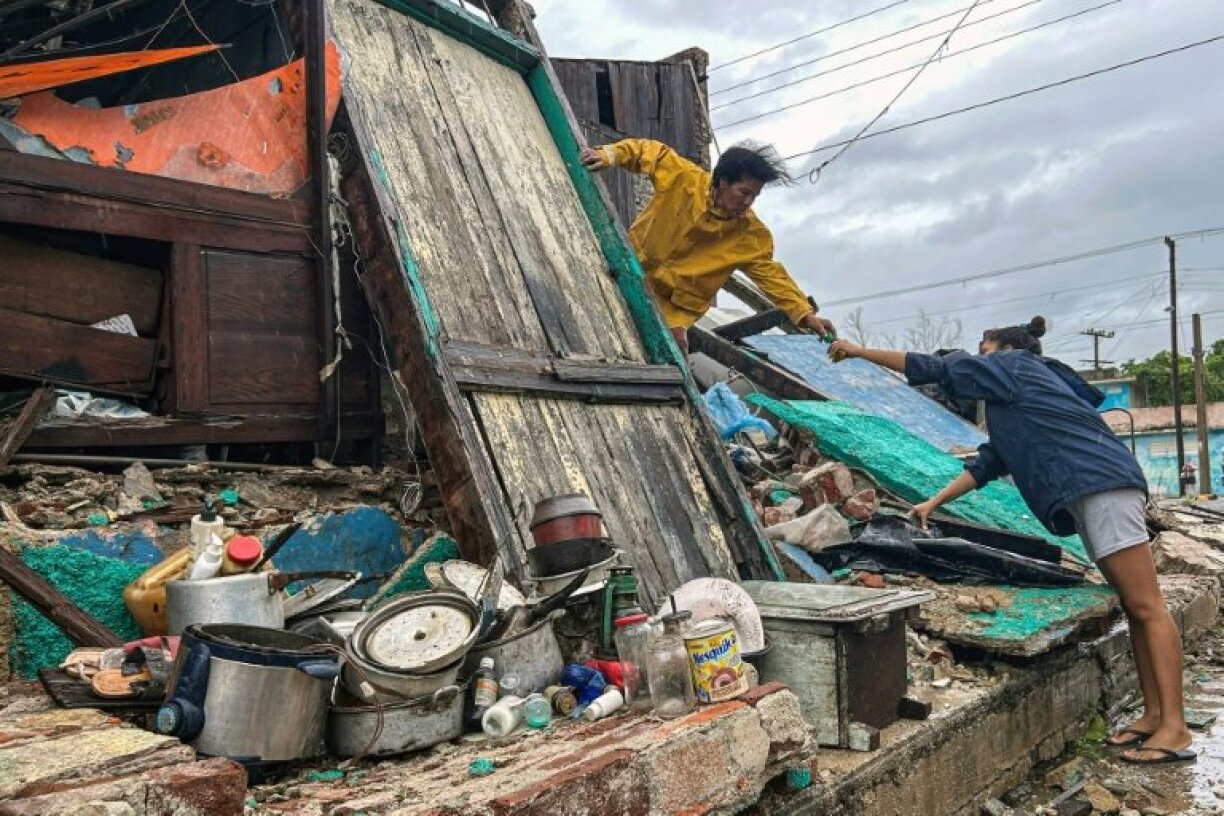
Here are five things you should know at the end of this week:

On Tuesday afternoon, Minister for Foreign Affairs Xavier Bettel delivered a comprehensive foreign policy declaration in the Chamber of Deputies, outlining Luxembourg’s stance on global instability from Ukraine to the Middle East and the future of the United Nations.
Foreign policy – This week, at the Chamber of Deputies, Minister for Foreign Affairs Xavier Bettel addressed Luxembourg’s stance regarding several pressing issues currently affecting world politics.
During the intervention, Bettel stated the recognition of Palestine must be paired with reconstruction and EU involvement in any peace plan. He announced a ban on settlement imports and the restricted entry of far-right Israeli ministers. Regarding Ukraine, Bettel reaffirmed support for a just peace, arguing Kyiv needs stronger military and financial backing to negotiate from strength. The minister urged UN reform by curbing Security Council vetoes, noted wider global instability including in Sudan, the Sahel and the Great Lakes, and announced that Grand Duke Guillaume will deliver Luxembourg’s speech at the next UN General Assembly.
On the fence – In a wide-ranging RTL Radio interview, Xavier Bettel delved further into the topic of his address. He warned that the Middle East ceasefire is “hanging by a thread”, urged firm diplomacy and US pressure on both Israel and Hamas, and restated that only a two-state solution can deliver lasting peace. He said he will not pick a side and is “for both”, calling for a Palestinian state and an Israel that lives in security.
On Ukraine, he argued Russia shows no real interest in peace and should be further isolated, including by China and India. With the new Trump administration, Bettel called for a pragmatic, constructive approach that protects Luxembourg’s interests and its major US trade ties while not accepting everything.
Under fire – Luxembourg MPs across the aisle rebuked Bettel’s foreign policy declaration, arguing that it lacked clarity and a coherent strategy, with some accusing the government of following others rather than setting priorities.
LSAP’s Yves Cruchten accused the government of hiding behind EU consensus instead of taking responsibility, while the Greens’ Sam Tanson questioned whether Bettel’s speech offered strategy or merely a travelogue. ADR’s Fred Keup said the shift toward recognising Palestine amounted to a confusing “zigzag”.
Pirate Party MP Sven Clement warned that a less stable world demands courage to act, not just reliability, and The Left’s David Wagner cautioned against mimicking far-right themes. Wagner also said Bettel should have used stronger language toward the United States.

A group of University of Luxembourg employees have filed a court case against the institution, claiming alleged changes to evaluation committees, while also reporting “moral harassment”, retaliation, and rising stress due to frictions dating back to the 2023 university council election.
In February, OGBL urged reversal of committee reforms and flagged criteria inconsistencies; after the rector declined a review in March, staff sued, citing a retaliatory climate and health strains, while the university denied blocking promotions, said cases are handled internally, and noted no election-irregularity reports.
Last month, masked protesters had appeared outside the Chamber of Deputies, denouncing what they described as an “alarming situation” within the institution.
Legal dispute – University of Luxembourg staff have taken a promotions dispute to the administrative court, alleging that reshaped evaluation committees delayed or blocked advancement amid “moral harassment”, retaliation, and rising stress. Documents reviewed by RTL Today point to the Faculty of Law, Economics and Finance’s (FDEF) departing from agreed criteria after the 2023 university council vote, with promotions allegedly slowed for backers of a rival candidate. Sources say the Dean sought to influence committee composition and urged a candidate to withdraw; the candidate refused, won, and later cited warnings about repercussions. Existing tenure and promotion committees were then dissolved and rebuilt, ostensibly over conflicts of interest that were not formally detailed.
In March and April 2024, candidates appealed to the rector; they were told existing criteria still applied and that an external consultant would select the new committee – an independence later questioned due to alleged ties to the Dean. Further letters, including via a law firm, argued governance breaches and drew no official reply; some staff view the overhaul as retaliation for positions taken during the 2023 election.
Union response and university position – In February 2025, the OGBL union asked that the committee reforms be reversed and, with the staff delegation, flagged discrepancies between recommendations and approved criteria; the rector replied in March that a review wasn’t warranted, and affected staff proceeded to court. A lawyer for several employees said the case raises serious concerns pointing to a wider cultural problem beyond the finance department.
Staff describe a climate where dissent draws suspicion, some facing disciplinary probes by the Dean, with stress, health issues, and burnout reported, and uncertainty undermining research and teaching. The university said “moral harassment” complaints at FDEF are being handled internally, denied blocking promotions, insisted decisions followed its rules, acknowledged petitions to the administrative court, and stated no information on election irregularities had reached the rectorate.
Masked protest – In September, masked demonstrators had rallied outside Luxembourg’s Chamber of Deputies, accusing the institution of abusive leadership and drifting away from its educational mission. Holding banners such as “Yes to student housing, no to autocracy” and “Yes to academic excellence, no to harassment”, the small group alleged power abuse, harassment and interference in internal elections, amid staff resignations and transfers.
At the time, the Ministry of Higher Education said anonymous claims fell outside its remit but stressed the University had a whistleblowing policy to protect those reporting legal breaches. The University acknowledged problems can arise but said it has strengthened procedures and support channels since 2022 under its collective agreement, and handles conflicts rigorously.

The finalists of the Luxembourg Song Contest 2026 have been revealed, and all eyes are now on the eight hopefuls who will be taking the stage at the Rockhal in January.
The road to Rockhal started at RTL during the last October weekend, with 58 hopefuls auditioning with 83 songs for a place in the LSC 2026 final and a shot at Eurovision.
30 years on since the Grand Duchy’s last appearance at the Eurovision stage, 2024 brought Luxembourg’s return to the competition amid great enthusiasm.
The magnificent eight –After 83 submissions and a full weekend of live auditions at RTL’s studios, the Luxembourg Song Contest 2026 moved from open call to prime-time stakes. An international panel of Eurovision-savvy professionals – songwriters, producers, performers and TV creatives – sat through 58 stage-ready showcases, weighing melody, vocal strength, originality, staging potential and that elusive “Eurovision moment”. Judges praised the breadth of styles and the level playing field the format offers first-timers and established names alike, saying the process is designed to surface a song and artist who can travel, televise well and connect with a pan-European audience.
The jury’s shortlist features eight finalists: Andrew the Martian (Portugal-born, Luxembourg-based self-taught artist), Daryss (theatre-trained singer–storyteller), Eva Marija (Luxembourg-raised multi-instrumentalist studying songwriting in London), Hugo One (choir-to-club vocalist blending soul, pop and disco), Irem (Conservatoire alum and festival regular with EPs in 2023 and 2025), Luzac (singer–composer and LSC 2025 bronze medallist), ShiroKuro (Liège-based pop/rock trio with classical training) and Steve Castile (multi-instrumentalist producer and vocalist).
The winner will be chosen on 24 January at Rockhal, with a chance to represent Luxembourg at Eurovision in Vienna in May.
A long road –The LSC 2026 auditions ran from 24–26 October at RTL, with 58 artists presenting 83 original songs, aiming for a spot in the televised final at Rockhal on 24 January 2026 and a shot at Eurovision in Vienna (12–16 May). Entry was open to those with Luxembourgish nationality, at least three years’ residency, or a proven cultural link to the country; 70% of candidates were Luxembourgish, 25% qualified via residency, and 5% through cultural ties.
Organisers highlighted a diverse field: 47% solely Luxembourgish, 22% dual nationals, and 30% from other countries, with gender balance described as roughly even. English led lyric choices (59%), nearly 30% of songs mixed languages – most often English and French – around 10% were entirely in French, and 7% included Luxembourgish. Six languages appeared overall (including Portuguese, Spanish, and German).
This year, artists could submit up to three songs (down from five) and a “team-up list” matched eligible singers with songwriters.
The performances were evaluated by an international jury of Eurovision-savvy creatives: Karin Gunnarsson (Melodifestivalen contest producer, Sweden), Gísli Berg (executive producer, Söngvakeppnin, Iceland), Paul “Dr Eurovision” Jordan (UK Eurovision expert), Ludovic-Alexandre Vidal (lyricist and co-writer of Luxembourg’s 2025 entry), and Norwegian singer-songwriter Elsie Bay.
Successful comeback – Luxembourg’s Eurovision comeback has snowballed from a nostalgic return into a full-blown national project, with the Luxembourg Song Contest drawing strong interest ahead of the Rockhal final. Ticket rushes, expanded auditions, and a six-language slate of entries point to a broader, more confident scene determined to send a song that can “travel” on the Eurovision stage.
The momentum began with Tali’s 2024 run – Luxembourg’s first appearance in three decades – where she won LSC and powered the country back into a Eurovision grand final, triggering a wave of pride.
That early surge set the tone for 2025, when the “doll” Laura Thorn took the baton and kept Luxembourg in the European spotlight – earning international plaudits and securing a place in the Basel final.
This renewed enthusiasm has spread to youth programs, underscoring how the Grand Duchy’s back-to-back campaigns have created a big wave of excitement.

Donald Trump said Thursday he had ordered the Pentagon to resume nuclear weapons testing “on an equal basis” with China and Russia, just minutes before his summit with Chinese leader Xi Jinping.
Trump’s proclamation likely comes as a response to Kremlin’s recent testing of the Burevestnik nuclear-powered missile, which Putin described as “unique” and possessing “unlimited range”.
Nuclear was also a word heard around the Grand Duchy this week, albeit in a different context: the Chamber of Deputies held a debate on energy policy that largely converged on the point that nuclear power should not shape the country’s future.
Heating up –US President Donald Trump said he had ordered the Pentagon to resume US nuclear weapons testing “on an equal basis” with Russia and China, an announcement delivered minutes before a meeting with China’s Xi Jinping that injected fresh uncertainty into nuclear diplomacy. The Kremlin, citing recent trials of its nuclear-capable systems, insisted it had not conducted atomic explosions.
Trump also claimed that the United States has the largest arsenal, a statement that contrasts with Stockholm International Peace Research Institute (SIPRI) figures, which show Russia holding more warheads. The United States signed the Comprehensive Nuclear-Test-Ban Treaty in 1996 but has not ratified it; the last US explosive test was in 1992. Beijing urged Washington to abide by the global test ban.
Key technical details remain unclear. It is not specified whether Trump’s directive refers to explosive tests or to continued testing of delivery systems, which the United States already conducts. Responsibility for the stockpile rests with the Department of Energy, not the Pentagon, and US assurance of warhead reliability currently relies on the Stockpile Stewardship Program, including modeling, simulations, and subcritical experiments. Expert and official timelines suggest that resuming underground explosive testing would take many months to years, and the White House has provided no timeline, method, or location.
The ambiguity has prompted confusion among governments and specialists over whether Washington plans an actual break with the long-standing halt on explosive testing.
Dangerous boast? –Russia claimed to have completed “decisive” testing of the Burevestnik, a nuclear-powered, nuclear-capable cruise missile that President Vladimir Putin called “unique” with “unlimited range”. He ordered infrastructure preparations to field the system. Russia’s military chief Valery Gerasimov said the last test on 21 October lasted about 15 hours and covered 14,000 km, claiming the missile can strike heavily protected targets at any distance and evade defenses – a program first unveiled by Putin in 2018.
The announcement comes as Russian forces make incremental gains in Ukraine and diplomacy falters. Formerly touted mediation by US President Donald Trump has stalled; he recently sanctioned Russia’s two largest oil companies and downplayed prospects for a new summit with Putin. Putin said Moscow would not tie its operations to political timelines, citing “military rationality”. Meanwhile, overnight drone attacks underscored the war’s toll: three people were killed and dozens injured in Kyiv, while a Ukrainian drone strike in Russia’s Belgorod region left one dead and one wounded.
Lëtz not go nuclear – As world leaders toy with the destructive potential of nuclear weapons, the much-maligned energy source was also on the docket in Luxembourg, but in a more constructive context. In a debate initiated by Green MP Joëlle Welfring, the Chamber of Deputies discussed energy policy, with particular emphasis on the country’s stance towards nuclear power. The session featured sharp criticism of the governments overall strategy, with Welfring accusing it of substituting meetings for measurable action. Across parties, MPs framed nuclear as incompatible with Luxembourg’s long-term goals, even as they acknowledged shifting attitudes at the EU level.
CSV MP Jeff Boonen called nuclear unsustainable due to unresolved waste storage and the risk profile of accidents, ruling out any plants on Luxembourgish soil. DP MP Luc Emering backed a rapid scale-up of renewables – highlighting hydrogen, biogas, and agri-PV – while saying any additional nuclear spending should target the waste problem. LSAP’s Franz Fayot cited his party’s decades-long opposition and dismissed small modular reactors as more hype than solution. ADR’s Tom Weidig argued for a non-ideological mix and ongoing safety upgrades, noting decisions on a potential cross-border waste site would not rest with Luxembourg.
Energy Minister Lex Delles closed by reiterating that gas and nuclear are not sustainable and pointed out the Greens also failed to advance reactor-lifetime issues when they were in government.

Hurricane Melissa has battered eastern Cuba after leaving Jamaica in ruins, striking the island with powerful winds and torrential rain as authorities raced to evacuate hundreds of thousands of people.
Climate change has exacerbated the power and frequency of natural disasters, and researchers are left wondering what else needs to happen before the world decides to act.
AI-generated videos were clogging social media feeds as Hurricane Melissa surged toward Jamaica, diverting attention from critical safety information about the massive Category 5 storm.
Massive destruction –Hurricane Melissa tore through the Caribbean, leaving “unprecedented” damage in Jamaica and battering eastern Cuba with destructive winds and torrential rain before turning toward Bermuda. At least 20 people were killed in southern Haiti, with 10 missing, as floods swept away homes; the Dominican Republic also reported severe flooding.
Cuba evacuated about 735,000 people in Santiago de Cuba, Holguín and Guantánamo as streets and houses were inundated, power and communications cut, and roofs ripped away. The Bahamas discontinued hurricane warnings for central and southeastern islands, but the US National Hurricane Center said flooding could persist across Cuba, Jamaica, Haiti and the Dominican Republic. Bermuda expects a close pass as a Category 1 storm and urged precautions.
Jamaica’s prime minister declared a “disaster area”, with roughly 25,000 people in shelters and major damage to infrastructure, property and connectivity. NOAA said Melissa tied the 1935 record for the most intense storm to make landfall when it struck Jamaica.
International responses are under way: the United States said rescue teams and supplies are being deployed, the UK announced £2.5 million in emergency aid, and Pope Leo offered prayers. With full assessments delayed by disrupted communications, UN climate chief Simon Stiell called the storm, which reached category 5, a stark reminder of escalating human and economic costs from extreme weather and the need to step up climate action.
Nature keeps sending signs –Hurricane Melissa’s explosive leap to Category 5 while barely moving underscores two climate-driven trends scientists say are becoming more common: rapid intensification and slow-moving or “stalling” storms. Exceptionally warm Caribbean waters – about 1.4°C above normal – loaded the system with energy, helping it surge from a 110km/h tropical storm to a major hurricane within a day. Researchers note that while atmospheric warming can slightly dampen intensity, warming sea surfaces generally dominate, boosting a storm’s potential strength. With heat running unusually deep, Melissa avoided the usual self-limiting effect of churning up cooler water, allowing it to stall and intensify in the same area – an uncommon and dangerous combination.
Warmer oceans also make hurricanes wetter. Analysts estimate storms like Melissa can produce roughly 25–50% more rainfall in today’s climate, a serious risk when a system creeps along at about 5km/h and dumps considerable amounts of rain on mountainous terrain such as Jamaica’s, where landslides are likely. Studies show stalling hurricanes are on the rise in the Atlantic, with one possible driver being weakened large-scale steering winds linked to polar warming – though scientists caution the exact mechanisms need more research. Beyond physics, experts warn of cascading impacts: prolonged surge, extreme winds over longer durations, and severe damage to tourism infrastructure that can set island economies back for years.
Unexpected danger –As if the very real and present danger wasn’t enough, AI-generated videos flooded social media as Hurricane Melissa closed in on Jamaica, crowding out official safety updates about the Category 5 storm. Dozens of fabricated clips – many bearing watermarks from OpenAI’s text-to-video tool Sora – depicted fake newscasts, staged flooding, sharks in streets, and caricatured locals downplaying the threat.
Jamaica’s information minister Dana Morris Dixon urged the public to rely on government channels, warning that a barrage of bogus content can mislead people just as authorities race to prepare for potentially record-breaking winds and rain.
The fakes circulated mainly on TikTok, with some also appearing on Facebook and Instagram despite policies requiring labels for realistic AI content. TikTok removed more than two dozen videos and several accounts. Experts said new text-to-video models have supercharged the spread of convincing hoaxes, with many viewers failing to notice AI watermarks. Researchers cautioned that such misinformation can dull risk perception during life-threatening weather, undermining evacuation and shelter guidance and ultimately contributing to avoidable loss of life and property.
Business & Tech – Recording industry giant Universal Music Group said Thursday it had struck a licensing deal with AI music generation startup Udio, in an industry-first tie-up aiming to launch an AI creation platform next year.
Science & Environment – With 100 days to go, the Milan–Cortina 2026 Winter Olympics will rely heavily on artificial snow, with 2.4 million m³ planned despite environmental criticism, underscoring Italy’s widespread snowmaking and shrinking Alpine snow cover.
Entertainment – Actress Prunella Scales, best known for her role as the long-suffering Sybil in the John Cleese TV comedy classic “Fawlty Towers”, has died aged 93. Cleese paid tribute to the “wonderful comic actress” after she passed away peacefully, at home, according to her sons.
All about AI – Amazon is set to cut about 14,000 jobs in a cost-saving push targeting administrative functions, as the company continues to focus on AI initiatives. The decision is also expected to impact Luxembourg, with 100 estimated job losses. The mass layoffs come just as Amazon’s stock booms after reporting “better-than-expected” earnings.
Can feel a headache coming – The Grand Duchy’s health sector is facing another bump in the road: a dispute over wages, on-call pay, and holidays has pushed negotiations for Luxembourg’s pharmacy employees into formal conciliation, a process that could end in strikes. Last week, the Doctors’ Association had also announced the end of their agreement with the CNS.

Your Weekly Recap is published every Friday at noon. Read earlier versions.